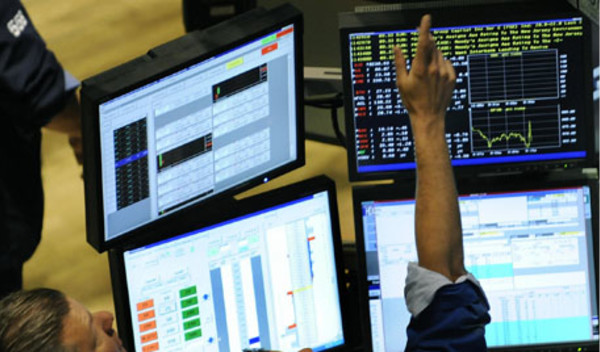
Article 1 / 5
Investing in equity: Specialist sectorsInvestors make hay but concerns over valuations emerge

Many global equity managers offer products focusing specifically on one of these three groups – giving fund selectors the opportunities to add their own biases in global equity allocations. However, the share prices of financial, tech and healthcare companies are often buffeted by external factors.
The healthcare sector in particular has been influenced by US political statements of late. Hillary Clinton hurt the value of healthcare stocks with a mere tweet last year, while Donald Trump maintained a harsh line for pharmaceutical firms throughout his campaign. This rhetoric has been toned down since Mr Trump came to office, and against that backdrop biotechnology companies have continued the sizeable rally of recent years.
Year to date the sector has returned 16 per cent, versus a 7 per cent gain for pharma firms.
Technology is another sector that has reaped plenty of rewards over the past decade. The five major IT stocks – Facebook, Apple, Amazon, Netflix and Alphabet (Google) – have dominated global and US returns again year to date, but caution over valuations is growing. The MSCI World Information Technology index has risen 23 per cent in the period, well ahead of the 10 per cent for its parent index.
Financials remain a particular ‘Marmite’ sector. Some view great value in stocks that are beginning to see nine years’ worth of regulatory tailwinds fade, while others remain convinced bank shares are the easiest way to lose investors’ capital. Sub-sectors provide an additional consideration, with insurance stocks returning 47 per cent over three years, well above the average of 31 per cent return for banks.
With each industry offering a unique set of positives and negatives, it is unsurprising that correlations between the sectors are relatively low. Because fund firms offering standalone strategies, fund selectors can create their own biases within portfolios.
Pharma stocks and banks, for example, have exhibited a correlation of just 0.42 over the past five years, much of which has constituted a bull market for global stocks generally.
Similarly, biotech and technology hardware stocks have a 0.52 correlation. The pharma sector – in which individual share prices are typically sensitive to the results of companies’ drug trails – exhibits the lowest correlations with peers.
Heartwood investment director David Absolon says the three sectors were of particular interest in the firm’s recent asset-allocation meeting. While this resulted in a slightly more bearish outlook and a reduction in equity exposure, the firm increased its position in healthcare stocks in a belief there is still value to emerge.
Mr Absolon has concerns about technology, however. “We’re discussing whether to taper, considering the journey we have been on,” he says.
“We’re continuing to debate financials. This would be globally, but also particularly in the US. In a world where you think Federal Reserve action is going to result in a steeper yield curve and deregulation of the sector is on the agenda, there are a few tailwinds. We think this could be a multi-year play.”
The potential for an upturn in financials has not been lost on fund managers, but as it stands words have spoken louder than actions in the Global sector.
Twelve of the 273 funds in that category have more than 30 per cent allocated to financial stocks, data from FE Analytics shows. Of these, three are specialist portfolios, four are multi-manager funds and five are value strategies.
Taha Lokhandwala is deputy editor at Investment Adviser
Key numbers
26ppt - The MSCI World Information Technology index’s outperformance of its parent over three years
0.58 - Correlation between the MSCI World Healthcare and the MSCI World Information Technology indices over the past five years
$6.9trn - Market cap of financial stocks in the MSCI World index, the largest sector accounting for 18 per cent of the benchmark.
28% - Three-year increase in the MSCI World Banks index




